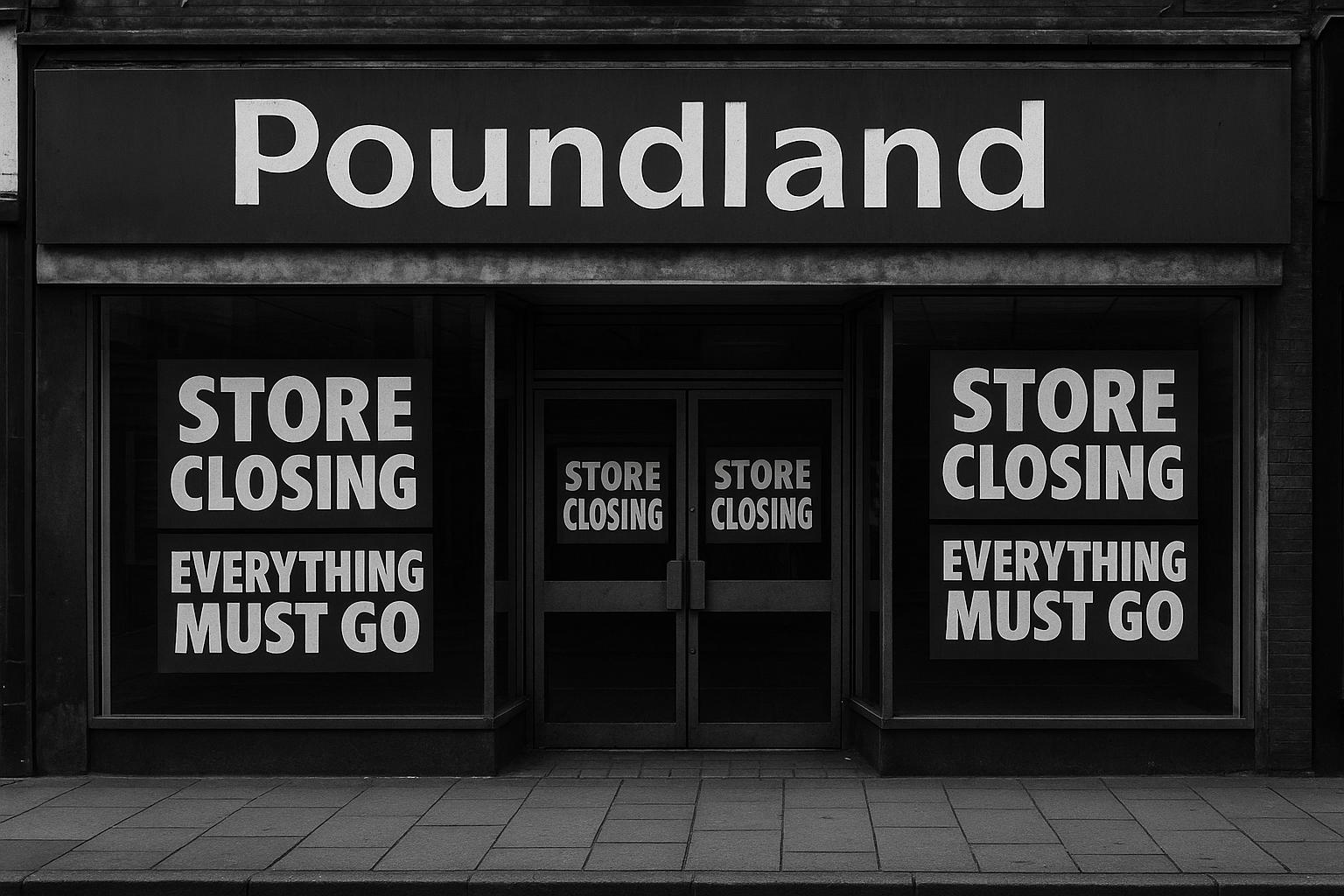Poundland’s sweeping closure programme underscores the precarious state of the UK’s discount retail sector—an echo of a broader decline driven by mounting operational costs and relentless market competition. As the chain shutters 12 stores in a single day, with nearly 50 closures estimated this August alone, it signals a shirking of responsibility that leaves communities deprived of accessible shopping options. These widespread closures, including locations in Brigg, Canterbury, Coventry, Newcastle, and Salford, reveal a retailer desperately retreating from its promise of affordable essentials, all under the guise of “refocusing” after recent ownership changes.
This move to slim down from around 800 outlets to approximately 650 represents not a strategic evolution but a retreat driven by cash-flow crises. Since being sold to Gordon Brothers—a decision driven by its own profit margins—Poundland appears to be sacrificing its brick-and-mortar presence to prioritise leaner, less resilient operations. The elimination of its online shopping and frozen food options, slated to disappear entirely by 2025 and 2026 respectively, strips ordinary Britons of value-based shopping choices, further exposing the chain’s shrinking role in serving everyday people.
The company’s management claims to be “simplifying” in response to a “challenging retail environment,” yet what they are truly doing is retreating from their commitments to affordable Britain. The axing of the Perks loyalty app and the discontinuation of vouchers, which remain redeemable until next year, are another blow to consumers trying to stretch their budgets in a time of economic strain. Behind these “refinements” lie the stark realities of a retail landscape where rising costs—especially from national insurance—are pushing discount chains to the brink, forcing them into costly downsizing and strategic retrenchment.
While the chain’s ambitions to open 50 new stores and the planned launch of Britain’s largest Poundland in Glasgow seem optimistic, they are mere Band-Aids on a fundamentally unstable model. The opening of new outlets comes amid closures, exposing contradictions in their approach. The reality is clear: this is not renewal but a desperate bid to stay afloat in a harsh climate, with profit-driven owners prioritising scattershot expansion over genuine service to working-class communities.
The wholesale retreat of Poundland reflects a wider disaster in the discount retail arena. The collapse and absorption of struggling competitors like 99p Store and Poundworld reveal how competitive and unforgiving this space has become. Rather than standing firm in the face of these pressures, Poundland’s current strategy demonstrates a shortsighted focus on cost-cutting, which undermines its role as a provider of affordable essentials. Instead, it risks further destabilising local economies and sacrificing the shopping needs of ordinary Britons on the altar of corporate profit.
Ultimately, Poundland’s current restructuring is a stark warning of how market forces and speculative ownership threaten to erode the bedroom communities, high streets, and shopping aisles that millions rely on. With mounting legal uncertainties and a clear retreat from its original mission, the future of this discount retailer remains uncertain—yet one thing is clear: under current conditions, it’s less a store for the people and more a casualty of the harsh economic realities that threaten to strip Britain’s high streets of their resilience.
Source: Noah Wire Services
